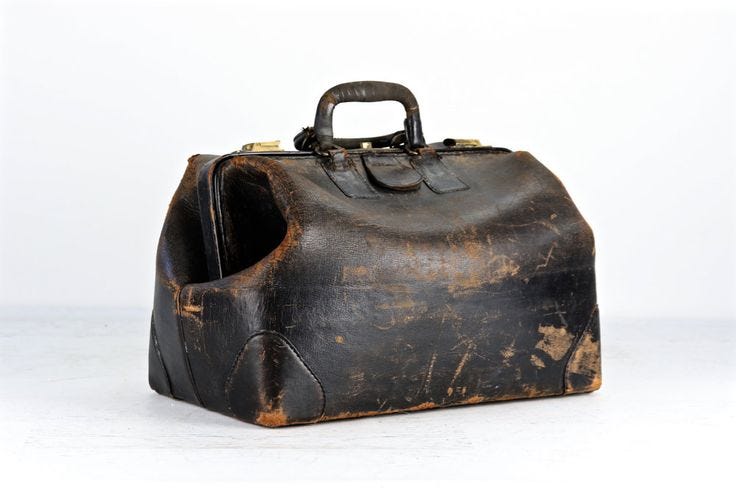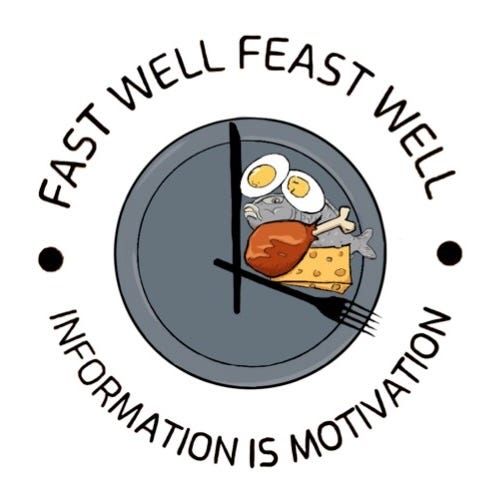The Day My Mom Almost Died
My mom almost died of COVID. But a miraculous housecall from a formerly retired doctor gave her a turnaround we never thought possible. It's criminal that not everyone with COVID was given this care.
I have a visceral story to share with you this week. Looking back on these events, they almost feel like they happened to someone else. Did we all just dream that COVID happened?
I haven’t written extensively about COVID mostly because there are so many excellent Substacks covering it much more thoroughly than I ever could (Dr. Pierre Kory, Dr. William Makis, Robert Malone, Jay Bhattacharya).
But this story below needs to be covered because it was instrumental in putting me on this path to becoming an independent health researcher, spending my time hunting down the most reliable health info I can find. I never saw that path coming. But below is one of the main events that put me on that path.
But before I cover the story, check out the comment a reader recently left.
I’m so thankful for doctors who have the humility to learn from their patients!
Although most of my life I’ve been mainstream in my thinking when it came to health and medicine, what happened below caused me to do an almost 180-degree turnaround in how I thought about health, the role of doctors, and how the human body works.
I wrote the short story below for an anthology of events that happened to people during COVID that Substacker Jenna McCarthy will be publishing later this year. One stipulation for the submissions was that they had to be uplifting and end on a positive note. The story I tell below does. Had Jenna been willing to accept COVID tragedies, a 10-volume series would have been in order.
Jenna did accept the submission below for her book but I thought I’d share it with you ahead of time. Everything in the story is factually true down to the slightest detail except I changed the name of the doctor to protect his privacy.
Resurrection Wednesday
“I feel like I’m dying.”
The raspy words were uttered through a wheezy voice strangled by congestion. My mom had survived breast cancer and birthed 6 children—but she had never said that before. To take her to the hospital or not—this was the question that loomed larger with each labored breath.
It was 9 o’clock at night on a chilly Tuesday in January, 2022. Although the scene seemed serene, Mom snug in her bed at home while snow gently fell out the window, it was clear from the panic in her eyes that her COVID was now life-threatening.
We’ve always been mainstream people when it came to medical matters. We got our childhood vaccines on time and went to the doctor when sick just like the next person. When my mom contracted breast cancer years before, she chose conventional treatment.
But something different seemed to be happening in the world now. For the first time in my life, I was afraid of the hospital, unsure if Mom would be put on a ventilator and given remdesivir. Plus, she insisted on staying home, and my siblings who were helping make the decisions agreed. Thankfully, something happened earlier that day that only just kept me from speed-dialing an ambulance.
That morning, I had spent several hours on the phone with the office of my mom’s primary care doctor—a doctor she’d had for over twenty years. My first call to them was to make a tele-visit to talk through my mom’s symptoms, and the receptionist gladly scheduled it for 1 pm that day. But then I got a call back saying the doctor canceled the tele-visit when he heard it was for COVID. “He wants you to take her straight to the hospital,” the receptionist relayed.
“But what if she’s not sick enough for the hospital yet?” I replied, indignant. “I’d like to please talk to the doctor about when I need to take her in.”
At this point, I hadn’t related to the office how sick she was but simply said she had COVID. I’ll spare you the details about many messages back and forth. That doctor never ended up speaking with me or my mom. The office was firm: for COVID, go to the hospital. I was puzzled.
At one point that morning, my mom mentioned that there was a doctor who attended my parents’ church. This connection seemed like a long shot but I was feeling desperate. I asked my mom if I should track down his phone number and ask him his opinion on when to go to the hospital. She approved. He answered immediately, and I explained my mom’s condition. Instead of advice, the words on the other end of the line were, “I’ll be right over.” I was overwhelmed with thankfulness. None of us had expected such a kind response.
In about 30 minutes, I saw a man in his late sixties get out of a car holding an old-fashioned leather doctor bag. It looked like something out of a movie: a nineteenth-century doctor making a house call. I directed the kind man to the bedroom where my mom lay.
My mom, out of politeness to this doctor, had slipped on a mask. We were not big maskers in general but my mom’s experience was that all doctors are militant about masks, and she didn’t want to give offense since he was kind enough to drive out to see her.
His first words to her were, “Please take that mask off, and don’t ever wear it again.”
“But what about you catching COVID?” my mom wondered.
“Don’t worry about me,” he replied. “The important thing is that you get enough oxygen.”
My brother and I smiled at each other. We were beginning to like this guy.
As he began examining my mom, I reiterated my frustration with how her primary care physician had refused to speak to me on the phone and kept insisting that I take her straight to the hospital before knowing the severity of her case.
“That’s why I came out of retirement,” Dr. Smith said. He had been retired for 5 years but had recently renewed his medical license to treat COVID patients. “Doctors and urgent care clinics aren’t providing necessary outpatient medication to people with COVID. The vast majority of people could avoid the hospital if they just got outpatient treatment.”
“And why aren’t they?” I wondered.
“I have no idea.”
After examining my mom, he said, “She’s having a cytokine storm which means her immune system is overreacting to the virus. But don’t worry. Steroids will calm it down. I’m writing you a high dose that she’ll take less of each day. This will quickly reduce the inflammation.” He also prescribed Zithromax for pneumonia and Ivermectin, which I had to drive to a compounding pharmacy to pick up. “She should begin to improve in 12 hours.” As he was leaving, I tried frantically to pay him, but he refused, saying, “I only want to help people.”
It was late afternoon by the time the prescriptions were ready to be picked up and nearly 5 pm before she took them. Four hours later, when she said she felt like she was dying, they hadn’t yet begun to work.
But we prayed, and then we all went to bed. The ominous fear of whether I should be taking her to the hospital still lingered as I tried to sleep. Would she survive the night? And if she didn’t, it would be my fault. It helped that she was insistent on not going. Should I force her to?
I jolted out of bed at 6 am the next morning and rushed into my mom’s room to see how she had fared through the night. But she wasn’t in bed. She wasn’t in the bathroom. Where was she? She was downstairs in the kitchen unloading the dishwasher. I quickly shooed her into bed to rest while she protested, “But I’m all better.”
It was like a miracle. In a matter of 12 hours, a person who thought she was dying had a complete turnaround. I texted Dr. Smith and told him about her recovery.
He responded, “That’s been happening to everyone I’ve been giving outpatient care to.” He had made home visits to over 150 people, most of them with severe COVID, and all of them had made a complete recovery without the hospital.
I shuddered. Just weeks ago, I had listened to Joe Rogan’s viral interview with Robert Malone. In it, Malone estimated that 90% of people who had died of COVID could have survived if they had received early outpatient care. At that time, I didn’t quite believe that the statistic could be true—but then I saw it at work with my own eyes.
My mom continued to recover despite her insistence on getting out of bed and doing things around the house when I wasn’t looking.
One thing I often wonder about: Was Dr. Smith our guardian angel or was he just a doctor doing what every doctor used to do before our medical system became unimaginably corrupt.
Edit: my mom wanted me to add that she was vaccinated and had one booster at the time of this illness. This is important so that no one thinks that she got so sick because she wasn’t vaccinated. I keep reading reports that the cytokine storm immune system overreaction happens most often in those who are vaccinated.
(Note: Congressman Troy E. Nehls (R-TX-22) entered the transcript of the Joe Rogan Experience #1757 – Interview with Dr. Robert Malone, MD into the Congressional Record after Twitter and YouTube removed the interview from their platforms. You can download the transcript here. Joe Rogan has an exclusive contract with Spotify so his full podcasts can only be accessed there.)
Recently, the FLCCC Substack shared that for the first two years of COVID, the WHO warned physicians not to use corticosteroids (the drug that stopped my mom’s cytokine storm) for COVID. The WHO was forced to change this stance when a randomized controlled trial called Oxford University’s Recovery Trial was stopped early because so many people were dying in the control group not receiving the steroids, that the researchers felt it was unethical to continue withholding steroids from them for the study.
However, many physicians and hospitals continued to follow the CDC’s approved protocol of ventilators and remdesivir after this research was published.
Physicians who dared to save lives a different way were let go from their hospitals, as was Dr. Paul Marik (story detailed here), the world’s most highly published critical care specialist and the person who discovered a life-saving sepsis protocol that brought the ICU mortality from 40% to 8%. Interestingly, both his sepsis protocol and the one he developed to treat COVID used steroids to reduce inflammation. (Keep in mind that Dr. Marik was an ICU doc. By the time a patient is in the ICU, they are in acute distress. Steroids can be life-saving for serious health issues and not necessarily effective for mild illnesses.)
The FLCCC story about most doctors not using steroids for severe COVID emphasizes even more how blessed we were by this doctor who was able to think outside the box.
A huge thank you to my paid supporters who make this work possible. I couldn’t do this without you!









Thank you for sharing this. You’re right, the stories that went the other way could fill endless volumes.
Your story brought tears to my eyes! What has happened to our medical community? It's heart warming to know there are still a few good doctors out there who are not afraid to do the right thing and buck the establishment!